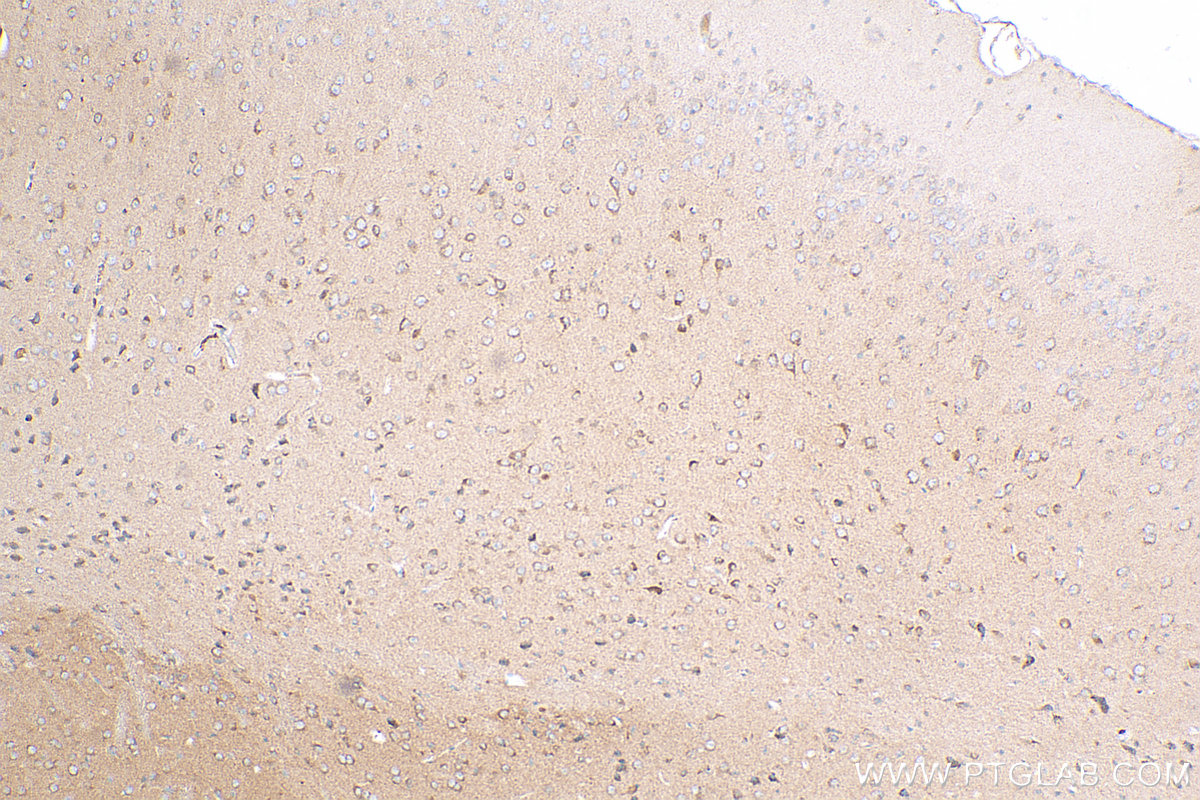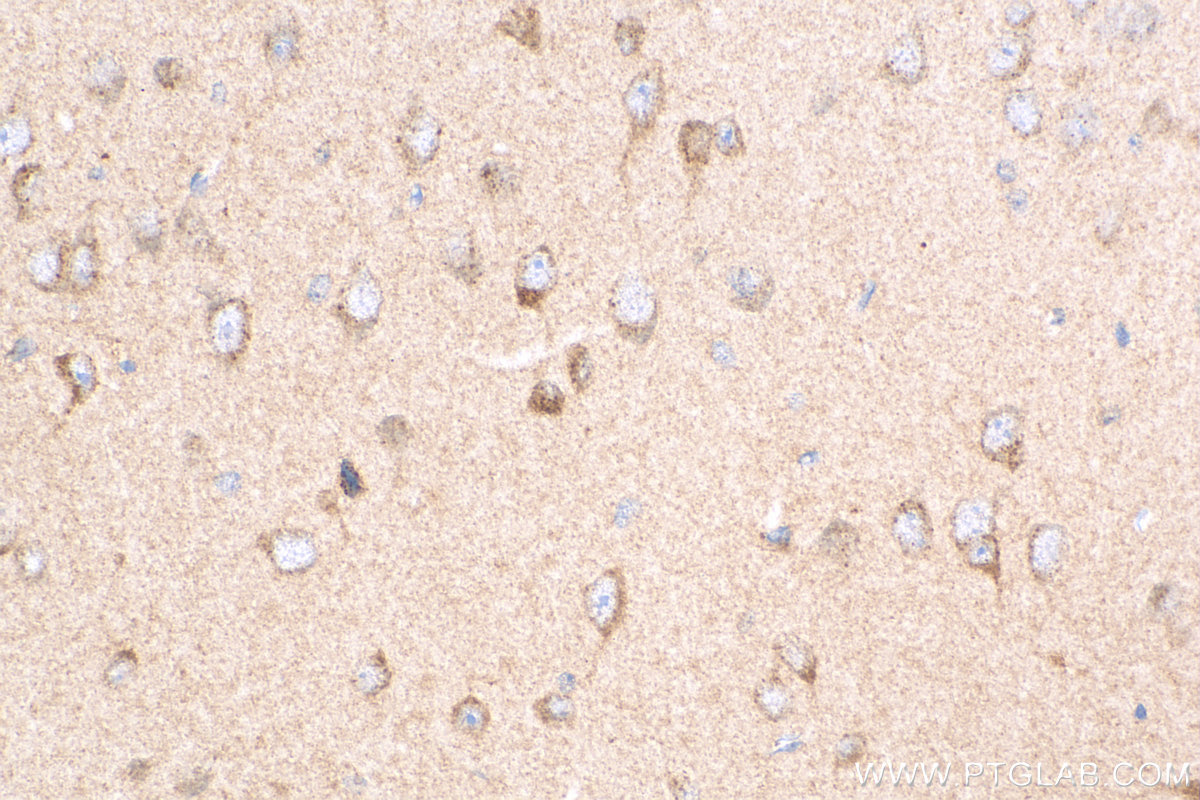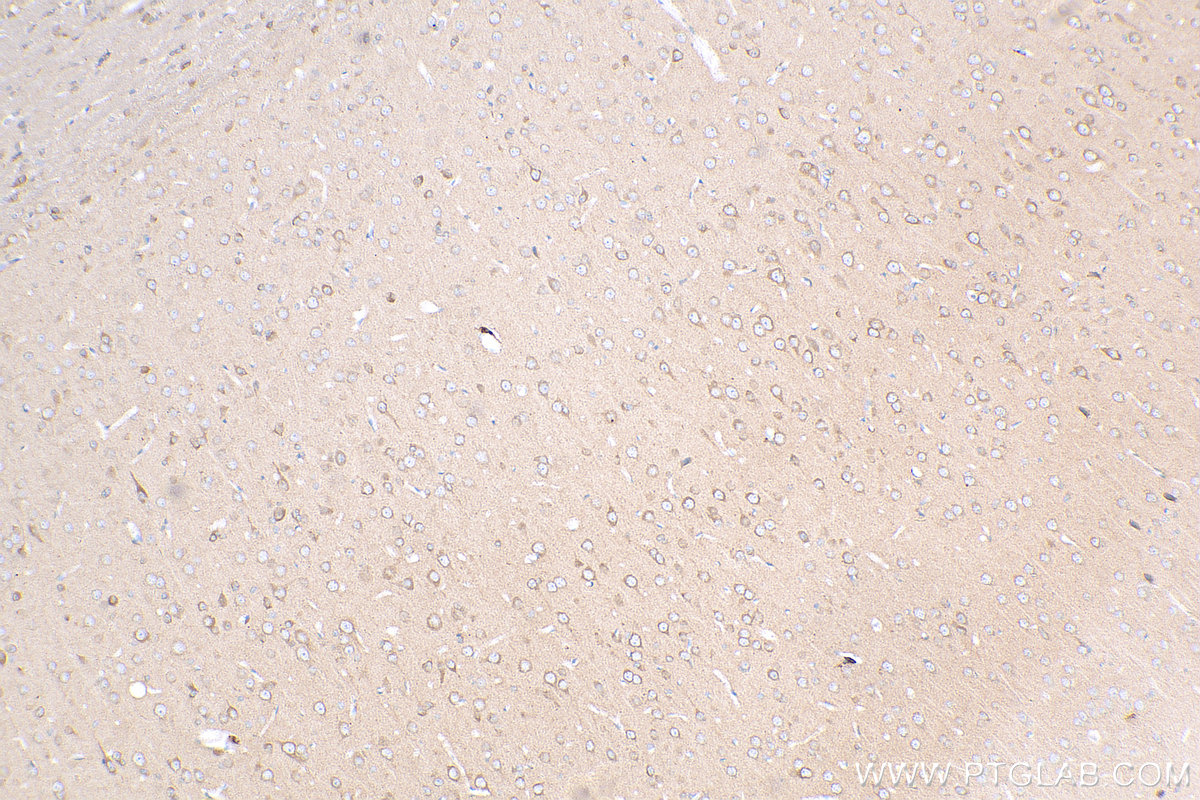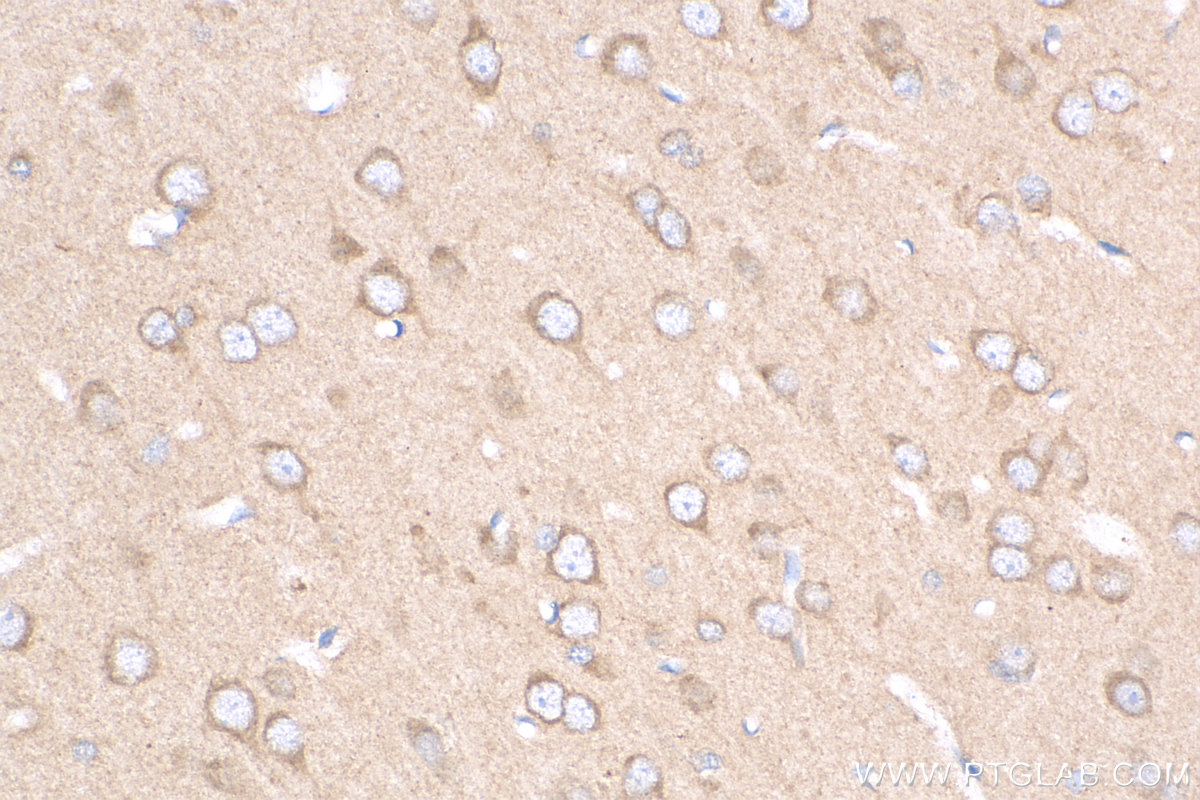验证数据展示
经过测试的应用
| Positive IHC detected in | mouse brain tissue, rat brain tissue Note: suggested antigen retrieval with TE buffer pH 9.0; (*) Alternatively, antigen retrieval may be performed with citrate buffer pH 6.0 |
推荐稀释比
| 应用 | 推荐稀释比 |
|---|---|
| Immunohistochemistry (IHC) | IHC : 1:50-1:500 |
| It is recommended that this reagent should be titrated in each testing system to obtain optimal results. | |
| Sample-dependent, Check data in validation data gallery. | |
产品信息
25295-1-AP targets PPFIA4 in IHC, ELISA applications and shows reactivity with human, mouse, rat samples.
| 经测试应用 | IHC, ELISA Application Description |
| 经测试反应性 | human, mouse, rat |
| 免疫原 |
CatNo: Ag18130 Product name: Recombinant human PPFIA4 protein Source: e coli.-derived, PGEX-4T Tag: GST Domain: 1-78 aa of BC132925 Sequence: MGSAADVRFSLGTTTHAPPGVHRRYSALREESAKDWETSPLPGMLAPAAGPAFDSDPEISDVDEDEPGGLVGSADVVS 种属同源性预测 |
| 宿主/亚型 | Rabbit / IgG |
| 抗体类别 | Polyclonal |
| 产品类型 | Antibody |
| 全称 | protein tyrosine phosphatase, receptor type, f polypeptide (PTPRF), interacting protein (liprin), alpha 4 |
| 别名 | KIAA0897, Liprin alpha 4, PPFIA4 |
| 计算分子量 | 701 aa, 78 kDa |
| GenBank蛋白编号 | BC132925 |
| 基因名称 | PPFIA4 |
| Gene ID (NCBI) | 8497 |
| RRID | AB_3085783 |
| 偶联类型 | Unconjugated |
| 形式 | Liquid |
| 纯化方式 | Antigen affinity purification |
| UNIPROT ID | O75335 |
| 储存缓冲液 | PBS with 0.02% sodium azide and 50% glycerol, pH 7.3. |
| 储存条件 | Store at -20°C. Stable for one year after shipment. Aliquoting is unnecessary for -20oC storage. |
背景介绍
Protein tyrosine phosphatase receptor type F polypeptide interacting protein alpha 4 (PPFIA4), also named as Liprin alpha 4, belongs to the liprin family and Liprin-alpha subfamily. PPFIA4 has been reported as a new potential therapeutic target for refractory pancreatic cancer, small cell lung cancer, and clear cell renal cell cancer (PMID: 35382861). As a glycolysis-related oncogene, PPFIA4 is also a potential biomarker of colon cancer (PMID: 34094943).
实验方案
| Product Specific Protocols | |
|---|---|
| IHC protocol for PPFIA4 antibody 25295-1-AP | Download protocol |
| Standard Protocols | |
|---|---|
| Click here to view our Standard Protocols |





